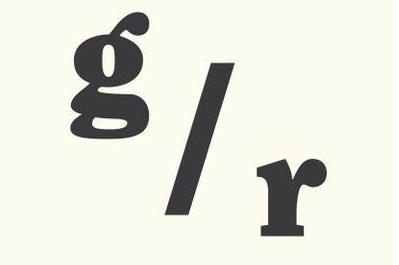Taylor Edmonds went to Gentle/Radical’s fourth Imagination Forum, where presentations by different artists explored how the colonial legacy and inaccessibility to museums and galleries harms POC artists in Wales.
At Gentle/Radical’s fourth Imagination Forum, held in The Sustainable Studio, we were encouraged to imagine a decolonised arts and cultural sector in Wales, a Wales free of racism, classism, and other forms of discrimination, away from Colonial mentalities. Gentle/Radical, Co-Directed by Rabab Ghazoul and Owen Griffiths, is a grassroots cultural organisation and platform campaigning for social change through education and discussion. They host a variety of events and workshops that create a safe space where issues can be explored, and experiences can be shared. It works as a counter-platform to challenge the inaccessibility of the arts and cultural sector in Wales by championing BAME and Welsh voices in particular, whilst being open to everyone from all backgrounds. There is emphasis on how a decolonised art scene would be inclusive of minority artists; not using them a ‘token’ to diversify a line up, or to only approach them to showcase work that deals with their identity.
At the Imagination Forum, these issues were explored by a series of short presentations and an open discussion. Presentations and performances were by artists, writers and activists, discussing their perspective of a decolonised Wales in their field. They discussed the arts in its many forms, including theatre, publishing, photography and academia. It is clear that without the barriers that colonial thinking produces – by creating the idea of the ‘other’ – the arts scene would naturally become more diverse and therefore be a true representation of the communities living in Wales.
A variety of topics were explored, each relating to the presenter’s own practices. Faith Walker discussed her exhibition on the Jamaican community in Port Talbot, using archive and family images to represent a community that is relatively unheard of, as we hear mostly of migrants settling in Cardiff. The exhibition gives a voice to these communities and shows them rooted into Port Talbot’s history. Faith explained that she chose to stage the exhibition in the local shopping centre, rather than a museum, due to the barriers that museums can present.
The inaccessibility of artistic spaces such as museums and galleries was a reoccurring theme in a number of the presentations. Sadia Pineda Hameed, co-founder of Lumin, a local indie press and print journal, talked of the difficulties she faced when setting up Lumin Library in part of a gallery. The library aimed to provide a decolonised selection, in contrast to the academic syllabus’ Sadia studied at University, but she was made to feel unwelcome and her project dismissed as a ‘waste of space’ by people she encountered at the gallery.
Um Mohamed explored the difficulties that people of colour come across when navigating artistic spaces, often feeling as if they have to leave key parts of their identity at the door, in order to fit in and walk freely. She expressed the need to unlearn oppressive mentalities, in order to decolonise culture. It’s important to note that nobody claims to know all the answers of how we are to decolonise our ways of thinking, and as we talked about in the discussion that followed the presentations, it isn’t always clear what it truly means to decolonise.
But if any change is to come about, this comes from discussion and educating each other, along with a willingness to change. Durre Shahwar talked about this in relation to the literature and publishing industries, explaining that the answer is not necessarily in diversity, but in decolonisation. This would involve shifting our entire context and undoing the ways in which colonial mindsets have shaped our perspectives. In relation to theatre, Jafar Iqbal suggested that this needed to be implemented through fairness and representation, ensuring that everyone from all backgrounds feel they are respected and represented. Jafar discussed the importance of transparency; that we may not get it right the first time, but to learn and grow from our experiences we (as people, and as organisations) need to be open and honest.
There is a vital need for safe spaces such as the Imagination Forums, film clubs and events that Gentle/Radical provide. It’s important to discuss and share our experiences as a community, without barriers or a dominant voice, so that we can educate and learn from each other with respect. Gentle/Radical brings everyone together in a relaxed, comfortable atmosphere that differs from an academic setting in that there is no intimidation or fear of saying the wrong thing. It is also important that these events are intergenerational, so that we hear from voices of all ages, as well as all kinds of cultural backgrounds, making our discussions representative.
The idea of decolonisation can be an intimidating concept to approach, it is often surrounded by wordy jargon that is hard to engage with, which is why our language and the terms we use need to be chosen carefully. I, still, would not be sure on how to give the ‘right’ definition. But I feel that to decolonise, means to dismantle the idea of the ‘other’, that was created by colonialism. That idea that has meant the oppression of anyone away from the idealised white, middle class, able straight man.
The Imagination Forum highlighted the role of the arts, as a powerful tool, that we can use to challenge colonial perspectives. I left feeling hopeful, questioning what I can do – big or small – to initiate change and conversation.
For more information on Gentle/Radical you can visit their Facebook page.
You might also like…
Writing in response to a recent collaborative project with musician Mark Daman Thomas exploring the borderlands of Y Mers (the Welsh Marches), poet Sophie McKeand reflects on nationalism, borders, Cymraeg, environmentalism, migration and the poetic imagination.
Taylor Edmonds is a regular contributor to Wales Arts Review.











